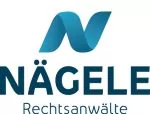Employee participation programs are becoming increasingly popular and can take a wide variety of forms. Such employee participation programs may range, for example, from purely debt-based participation in the employer's profits and/or liquidation proceeds to ordinary voting shares.
In the following, we briefly summarize the most common employee participation programs in simplified form, whereby it is assumed that the employer operates as a Liechtenstein stock corporation (AG):
1. Virtual Stock Option Program (VSOP)
The Articles of Association of a Liechtenstein stock corporation (AG) may provide for the creation of profit participation certificates ("Genusscheine") for the benefit of employees, among others.
A profit participation certificate may entitle the employee to a share in the balance sheet profit or in the liquidation result or to subscribe to new shares.
A profit participation certificate is not a membership right but a claim under the law of obligations of the employee vis-à-vis the AG. For this reason, no contribution is required and the rights of such a profit participation certificate can be largely freely structured.
2. Working Shares
An AG may also provide in its Articles of Association for the issuance of so-called "working shares" to its employees.
These working shares are issued to the employees of the AG without payment of a contribution. The contribution is made by offsetting it against the dividend entitlement of the working shares.
As soon as 25% of the contribution is paid in (by offsetting against the dividend entitlement), the capital increase is entered in the Commercial Register and the shareholders of the working shares receive their voting rights.
Upon full payment of the contribution, the working share is exchanged for an "ordinary" share.
3. Option Right (ESOP)
Another option for employee participation is the issuance of option rights.
In this case, employees receive an option right to acquire shares or participation certificates of the AG in the future.
In principle, the following options exist in this respect:
1.
In the case of a conditional capital increase, the AG can already
provide in the Articles of Association that the capital will be
increased upon exercise of the option right by the employee;
2.
Alternatively, a resolution of the General Meeting is required for
such capital increase. In this case, it is advisable to conclude a
shareholders' agreement to regulate the voting rights of the
shareholders.
Regardless of which of the two options above is chosen, the
employee has to make the contribution for the shares or the
participation certificate when exercising the option.
The content of this article is intended to provide a general guide to the subject matter. Specialist advice should be sought about your specific circumstances.

